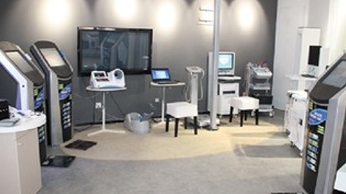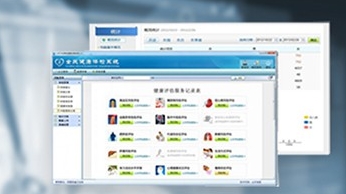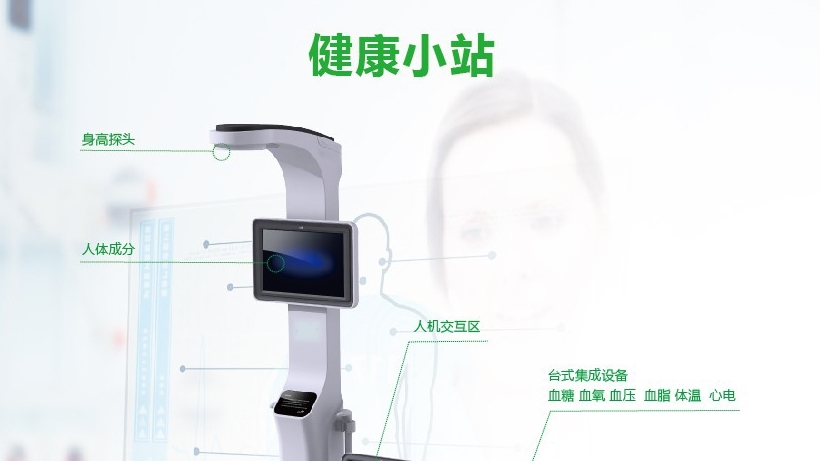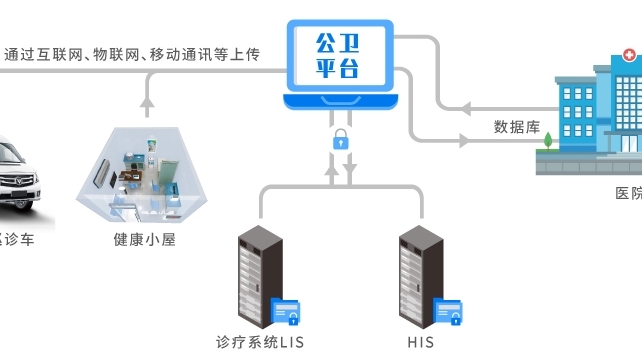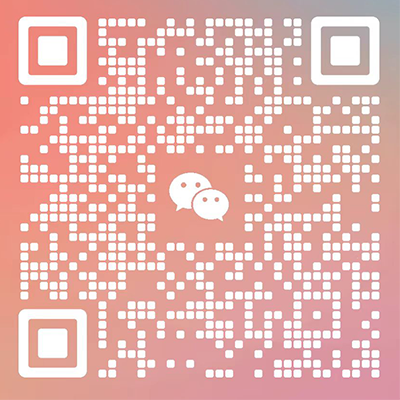 濟(jì)南易享醫(yī)療科技有限公司
濟(jì)南易享醫(yī)療科技有限公司
服務(wù)熱線:185 5315 8035
聯(lián)系地址:濟(jì)南市高新區(qū)新濼大街1666號(hào)齊盛廣場2號(hào)樓15樓
慢病隨訪包對(duì)醫(yī)生有什么好處呢?
在慢性病患者的長期管理中,醫(yī)生定期隨訪是把控病情的關(guān)鍵環(huán)節(jié)。慢病隨訪包就像一個(gè) “全能百寶囊”,把醫(yī)生隨訪時(shí)需要的工具、資料和信息集成在一起,讓原本繁瑣的隨訪工作變得高效又貼心。它的便利之處滲透在隨訪的每個(gè)環(huán)節(jié),實(shí)實(shí)在在解決了醫(yī)生的痛點(diǎn)。
In the long-term management of chronic disease patients, regular follow-up by doctors is a key link in controlling the condition. The chronic disease follow-up package is like an "all-in-one treasure bag", integrating the tools, materials, and information needed by doctors during follow-up, making the originally tedious follow-up work efficient and caring. Its convenience permeates every aspect of follow-up, effectively addressing the pain points of doctors.
一、設(shè)備 “一站式” 配齊:告別 “負(fù)重前行”
1、 Equipment 'one-stop' configuration: Say goodbye to 'carrying heavy loads forward'
過去醫(yī)生隨訪時(shí),需要單獨(dú)攜帶血壓計(jì)、血糖儀、聽診器等多種設(shè)備,有時(shí)還要額外帶筆、記錄本,拎著沉重的袋子爬樓入戶,既麻煩又容易遺漏物品。慢病隨訪包則像一個(gè) “移動(dòng)診療站”,內(nèi)部有專門的分區(qū)收納各類工具:上層放便攜式電子血壓計(jì)、藍(lán)牙血糖儀(能自動(dòng)連接手機(jī)傳輸數(shù)據(jù))、體溫槍,中層收納聽診器、手電筒、壓舌板等查體工具,下層分格放置一次性耗材(如血糖試紙、消毒棉簽、血壓袖帶)。醫(yī)生只需拎起隨訪包,就能完成血壓、血糖、心率等基礎(chǔ)檢測,甚至有的包還配備小型心電圖機(jī),當(dāng)場就能做簡單的心電監(jiān)測,再也不用為 “漏帶某樣設(shè)備” 而折返奔波。
In the past, when doctors followed up, they needed to carry various devices such as blood pressure monitors, blood glucose meters, stethoscopes, and sometimes extra pens and notebooks. They had to carry heavy bags and climb up stairs to enter the house, which was both troublesome and prone to missing items. The chronic disease follow-up package is like a "mobile diagnosis and treatment station", with dedicated compartments inside to store various tools: the upper layer contains portable electronic blood pressure monitors, Bluetooth blood glucose meters (which can automatically connect to mobile phones to transmit data), temperature guns, the middle layer stores stethoscopes, flashlights, tongue depressors and other examination tools, and the lower layer stores disposable consumables in compartments (such as blood glucose test strips, disinfectant cotton swabs, blood pressure cuffs). Doctors only need to pick up the follow-up bag to complete basic tests such as blood pressure, blood sugar, heart rate, etc. Some bags are even equipped with small electrocardiogram machines, which can perform simple electrocardiogram monitoring on the spot, no longer having to rush back and forth for "missing a certain device".

二、資料 “有條理” 收納:隨取隨用不慌亂
2、 Organized storage of materials: easy to access and use without panic
隨訪時(shí)需要核對(duì)患者的病歷、用藥清單、上次隨訪記錄,還要填寫新的隨訪表,以往這些紙質(zhì)資料容易散亂,查找起來費(fèi)時(shí)費(fèi)力。慢病隨訪包內(nèi)設(shè)有文件夾層和分類卡:一側(cè)是患者檔案袋(按姓名拼音排序,貼有醒目標(biāo)簽),里面裝著病歷摘要、用藥記錄、檢查報(bào)告復(fù)印件;另一側(cè)是標(biāo)準(zhǔn)化隨訪表格(按高血壓、糖尿病等病種分類),表格上印有重點(diǎn)詢問項(xiàng)(如 “最近一次測血壓是哪天?”“有沒有忘記吃藥的情況?”),醫(yī)生勾選或填寫即可,避免漏問關(guān)鍵信息。還有的隨訪包配備便攜式打印機(jī),當(dāng)場就能打印本次隨訪總結(jié),讓患者簽字留存,省去了后續(xù)補(bǔ)錄的麻煩。
During follow-up, it is necessary to check the patient's medical records, medication list, last follow-up records, and fill out a new follow-up form. In the past, these paper materials were easily scattered and time-consuming to search for. The chronic disease follow-up package includes folder layers and classification cards: on one side is the patient file bag (sorted by name in pinyin and labeled prominently), which contains medical record summaries, medication records, and copies of examination reports; On the other side is a standardized follow-up form (classified by hypertension, diabetes and other diseases), which is printed with key questions (such as "When was the last time blood pressure was measured?" "Did you forget to take medicine?"), which can be checked or filled in by the doctor to avoid missing key information. Some follow-up packages are equipped with portable printers, which can print the summary of this follow-up on the spot, allowing patients to sign and keep it, saving the trouble of subsequent supplementary recording.
三、數(shù)據(jù) “電子化” 管理:告別手寫錯(cuò)誤與丟失
3、 Digital Data Management: Say Goodbye to Handwritten Errors and Losses
傳統(tǒng)隨訪靠醫(yī)生手寫記錄數(shù)據(jù),容易出現(xiàn)字跡潦草、數(shù)值記錯(cuò)的問題,后續(xù)錄入電子系統(tǒng)時(shí)還要重新核對(duì),耗時(shí)易錯(cuò)。慢病隨訪包內(nèi)的設(shè)備多支持?jǐn)?shù)據(jù)同步:比如電子血壓計(jì)測出的數(shù)值,能通過藍(lán)牙直接傳輸?shù)诫S訪包附帶的平板電腦或手機(jī) APP,自動(dòng)填入患者的電子檔案;血糖儀檢測后,APP 會(huì)同步生成血糖波動(dòng)曲線,醫(yī)生當(dāng)場就能對(duì)比歷史數(shù)據(jù)(如 “這次空腹血糖比三個(gè)月前下降了 1.2mmol/L,說明用藥調(diào)整有效”)。這種 “即測即存” 的方式,讓醫(yī)生省去了手動(dòng)錄入的步驟,還能避免因字跡模糊導(dǎo)致的誤判,比如把 “140mmHg” 誤寫為 “120mmHg” 的情況幾乎不再發(fā)生。
Traditional follow-up relies on doctors manually recording data, which is prone to problems such as illegible handwriting and incorrect numerical values. Subsequently, when entering the data into the electronic system, it needs to be rechecked, which is time-consuming and prone to errors. The devices in the chronic disease follow-up package mostly support data synchronization: for example, the values measured by the electronic blood pressure monitor can be directly transmitted to the accompanying tablet or mobile app of the follow-up package via Bluetooth, and automatically filled in the patient's electronic file; After the blood glucose meter is tested, the APP will synchronously generate a blood glucose fluctuation curve, and the doctor can compare the historical data on the spot (such as "The fasting blood glucose has decreased by 1.2mmol/L compared to three months ago, indicating that the medication adjustment is effective"). This' test and save 'method eliminates the need for doctors to manually input data and avoids misjudgments caused by blurry handwriting, such as mistaking' 140mmHg 'for' 120mmHg ', which almost never happens again.
本文由慢病隨訪包友情奉獻(xiàn).更多有關(guān)的知識(shí)請(qǐng)點(diǎn)擊:http://www.shchainless.com我們將會(huì)對(duì)您提出的疑問進(jìn)行詳細(xì)的解答,歡迎您登錄網(wǎng)站留言.
This article is dedicated to friendship For more information, please click: We will provide detailed answers to your questions. You are welcome to log in to our website and leave a message
